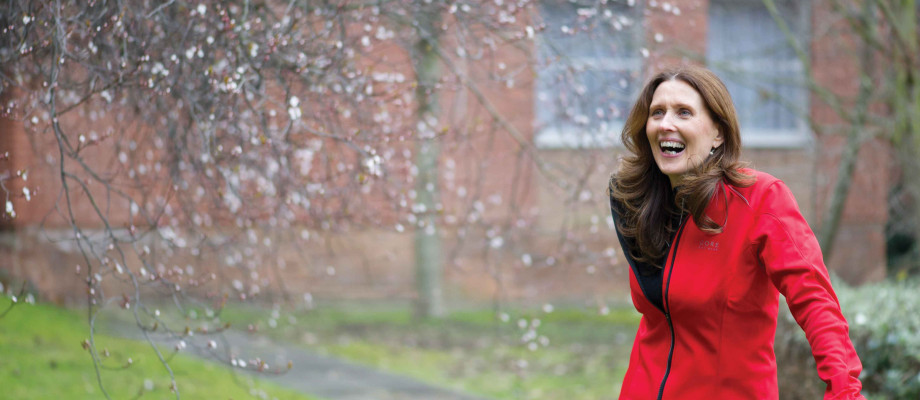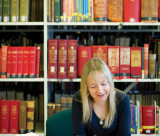
Marion’s bike challenge
June 11th, 2013
Professor Marion Walker MBE needed a really, really good reason to entice her back into the saddle for the first time in four decades for this year’s Life Cycle challenge. And, perhaps unfortunately for the self-proclaimed cycling scaredy cat, Vice-Chancellor Professor David Greenaway and his team found her kryptonite — the chance to raise funds for the cause closest to her heart: stroke rehabilitation research.
The carrot of funding to expand the University’s expertise and remit under her leadership, as well as highlighting the importance of stroke rehab, was too good an offer to refuse. But would Marion be getting on her bike to cycle between the capital cities of Great Britain and Ireland if it wasn’t in aid of ‘her’ cause?
Put simply… no.
“Because the focus is stroke rehab research, and as a Professor of stroke rehab research, it seems only right that
I should be a part of it,” says Marion. “And
I must admit that I’m really enjoying it — but also quite sore at the same time.”
But over every mile, up every hill and whenever a car goes past a little too closely — Marion’s least favourite part of cycling — she thinks about why she’s doing it and the cause the team of 12 is championing.
“It is a driving factor,” says Marion. “And it’s not so much the money that’s raised, it’s about raising the profile of the research and about spreading the word around that stroke rehabilitation research is a really important area for further development. Because we’ve got some rising stars at this University, and we’re already acknowledged as a centre for excellence for our work, but we want to move bigger and better and be expanding.”
Marion works closely with stroke survivor Ossie Newell MBE — who, following a stroke 13 years ago, has worked tirelessly to regain his quality of life — in determining research priorities at Nottingham. But unfortunately Ossie’s remarkable recovery is the exception rather than the rule.
“What’s lovely for us is that Ossie is our ambassador for stroke rehab so he helps us target the areas which are important to stroke survivors and their carers,” says Marion. “He helps us decide what the right outcome measures for our research are, the things that are important to patients.
“Ossie is a unique person who has managed to overcome a lot of barriers because of his dogged determination. But the majority of patients find that difficult and need assistance. Ossie’s managed to do that with the help of rehabilitation, so he’s a good example of what can be achieved. But there are not many people like Ossie.”
With additional funding, further research and the prioritisation of areas that are most important to stroke sufferers, it is hoped there will be more and more stroke survivors who feel the ‘Ossie effect’ and manage to enjoy as full a life as possible.
“Stroke is the main cause of adult disability in the UK and the role of rehab is to improve quality of life for people,” says Marion. “It’s about making sure our research is focused at areas that are important to patients and their carers, because it’s a very bleak time in the aftermath of stroke and people struggle quite badly as a result.
“Anything our research can do to improve functional performance, functional ability in our patients, reducing the strain on carers and lessening the financial impact on social services — these are all major drivers. Basically improving the quality of life for those with stroke.”
That’s why, with all this in mind, the 50-mile training rides in the rain and the achey muscles don’t seem quite so bad.
Stroke rehabilitation research is one of the key priorities of Impact: The Nottingham Campaign. To find out more about Life Cycle 3’s community events on Sunday 1 September and stroke rehabilitation research at the University,
visit http://nott.ac.uk/cycle
There is also a raffle to raise money for the cause. Find out about the great prizes and where to buy tickets, visit
http://tiny.cc/LC3raffle
Tags: Impact: The Nottingham Campaign, Life Cycle 3, Ossie Newell, Professor Marion Walker, stroke rehabilitation
Leave a Reply
Other Features

Baptism of fire for WW1 curator
Stories from the First World War are being revealed for the first time at a University […]


